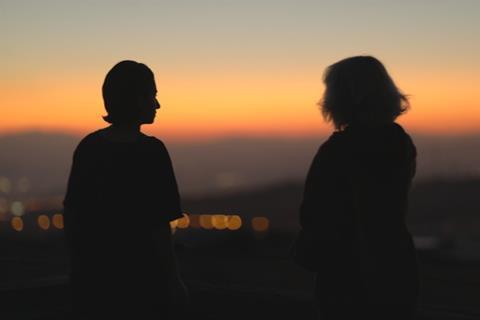In Armenia, four subjects search for their place in society through a series of quirky vignettes

Dirs: Aren Malakyan, Vahagn Khachatryan. Armenia/Germany/Switzerland/Denmark/Georgia. 2022. 80 mins.
Modern Armenia is seen through the lens of four lives in this quirkily enjoyable documentary from Aren Malakyan and Vahagn Khachatryan, which has its premiere at Swiss festival Visions du Réel. It marks the directors’ first collaboration, although they have both made shorts independently in the past and their feature owes something to short film in that its protagonists are presented as a series of vignettes within their own little kingdoms, with the directors leaving us to forge our own connections between them. Although a little more handholding would be welcome for an international audience who are likely to be unaware of the ins and outs of Armenian domestic politics, the film’s kaleidoscopic approach should see it garner further festival interest.
The shifts in mood are smoothed considerably by the score from Avet Terteryan, ethereally evocative in some places, discordantly unsettling in others.
The scene is set by a bright white screen and a voice-over talking of humans and their dreams which “created God, happiness and fulfilment”, and though there will be two additional flurries of more experimental filmmaking – a dreamlike sequence at the film’s midway point and an ending that speaks more to shattered dreams than realised hopes – this is largely an observational affair. The title refers to five dreamers but there are four main subjects, with a potential fifth someone whose dreams are already over. Young women Amasia and Sona’s realm is a rooftop where their love for one another is freed from the societal prejudice they experience elsewhere. It’s a world away from rural farmer Karen, the owner of the horse, who faces his own romantic challenges and is keen to find a wife willing to join him in the countryside. Sixtysomething Melania, meanwhile, is mistress of an elderly hospital elevator but still has aspirations that are out of this world.
There is an entertaining absurdity to Melania’s job, which seems to have been caught using a fixed, possibly hidden, camera, as we see her accompanying an assortment of passengers between floors, some more relaxed about the vagaries of the ancient lift than others. More fun still, is her downtime, in which we see her and a friend sticking cosmonaut pictures into a book and watching a documentary about space pioneer Valentina Tereshkova on the tiny screen Melania has set up in her lift domain. Her dream may be the least likely of those we see to be realised, something she knows herself, but her twinkly passion for it remains undimmed even in the face of an uncertain future.
There is a sweetness too in Karen’s pursuit of a bride – most in focus during a largely whispered conversation between him and the shy girl who finally attracts his affections – although this is leavened by rather more harsh realities, including a trip to a sex worker and an earlier drive round a village with an older man, who suggests the easiest way to get a bride may be to kidnap her. This is something that indicates just how difficult things could become for Amasia and Sona even as we see their affection for one another is as warm as the golden magic hour light that they are captured against. Later, the dreams of their world come into more direct conflict with the realities of wider society.
Although some of the filmmaking is rough around the edges in terms of its storytelling, the shifts in mood are smoothed considerably by the score from Avet Terteryan, ethereally evocative in some places, discordantly unsettling in others. The contrasts in the country are also seen via the geography, from the wide open snowy spaces where Karen rides his horse or the rooftop frequented by Amasia and Sona to the creaking confinement of the old hospital lift and austerity of the tower blocks we’ll see towards the end of the film. Malakyan and Khachatryan may be celebrating the power of dreams, but they also remind us that even those that seem easily fulfilled may be more out of reach than you think.
Production company: Color of May, OOlik Production
International sales: OOlik Production, vahagnxach@gmail.com
Producers: Eva Blondiau, Vahagn Khachatryan
Cinematography: Vahagn Khachatryan, Aren Malakyan, Andranik Sahakyan
Editing: Federico Delpero Bejar
Music: Avet Terteryan























